




If you enjoy keeping your clothes looking crisp and wrinkle-free, then having a quality ironing board is essential. A good ironing board provides a stable and spacious surface for ironing, making the task quick and efficient. With so many options available on the market, finding the perfect ironing board for your needs can be overwhelming.
Whether you iron frequently or occasionally, there are several factors to consider when choosing an ironing board. Size, stability, height adjustability, and additional features such as built-in ironing board covers or storage space all play a role in finding the right fit for you.
In this article, we will explore some of the best ironing boards available in the market, considering different budgets and requirements. From compact and portable options for small spaces to heavy-duty, professional-grade ironing boards, we have researched and reviewed a range of options to help you make an informed decision.
Read on to discover the top ironing boards and find the perfect one to meet your ironing needs.
Factors to Consider When Choosing an Ironing Board
When it comes to choosing an ironing board, there are several factors to consider in order to find the perfect one for your needs. Taking the time to evaluate these factors will ensure that you select an ironing board that is not only functional but also complements your ironing routine.
1. Size and Height
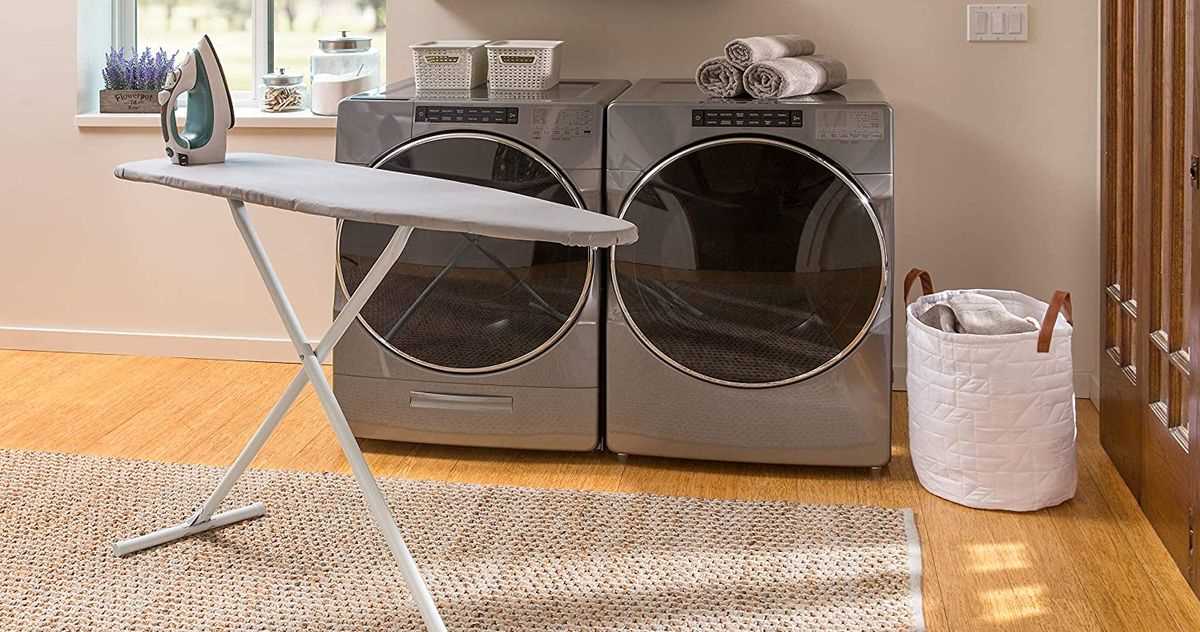
One of the first things to consider is the size and height of the ironing board. The size should be large enough to accommodate your clothing items without any restrictions, allowing you to iron efficiently. Additionally, it’s essential to select an ironing board with an adjustable height feature, so you can customize it to your preferred level for comfortable ironing.
2. Stability and Durability
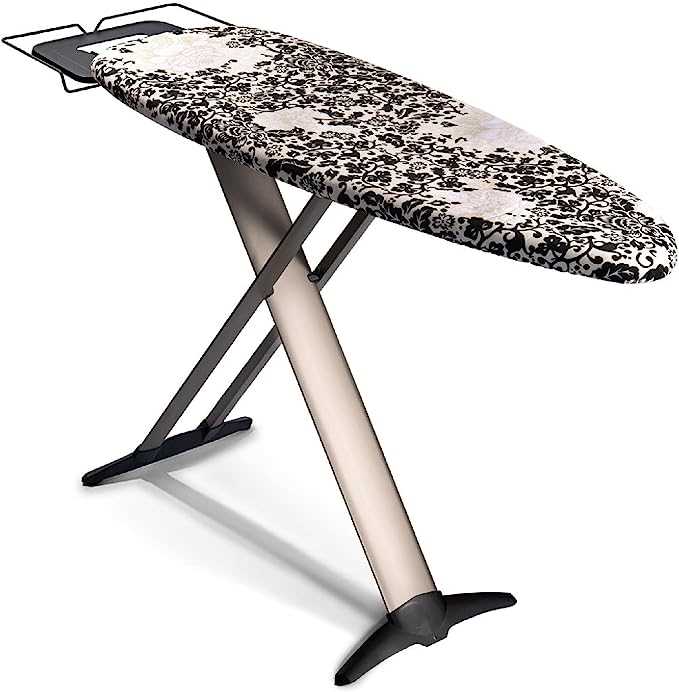
Stability and durability are crucial factors to consider when choosing an ironing board. Look for a board that has a sturdy frame and a stable base to ensure that it will not wobble or tip over while you are ironing. Furthermore, consider the materials used in the construction of the board to ensure its durability, as you want it to withstand frequent use and last for a long time.
3. Ironing Surface
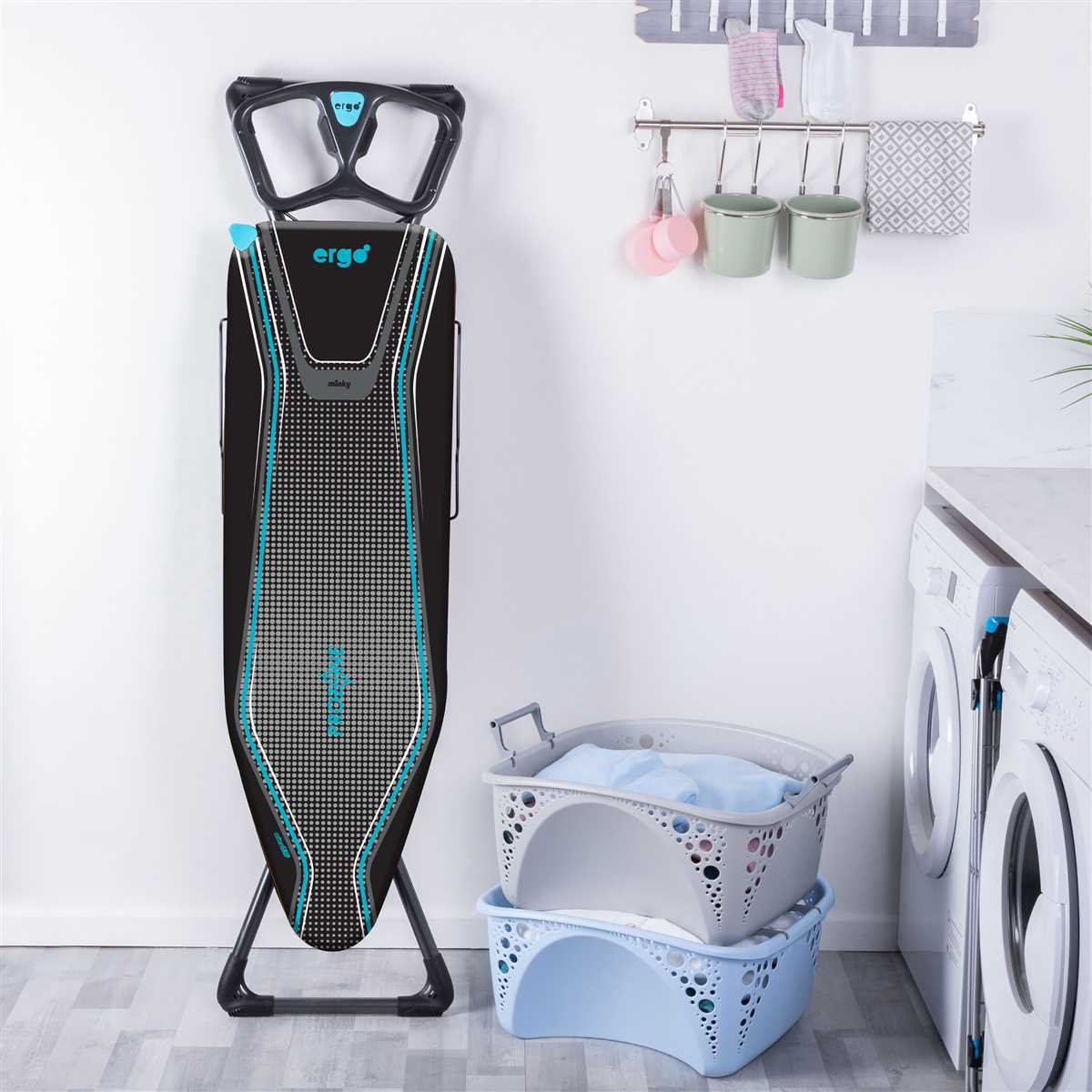
The quality of the ironing surface is another important factor to consider. Look for a board with a smooth and heat-resistant surface that allows your iron to glide smoothly without causing any damage to your clothes. A padded surface can also be beneficial, as it provides additional cushioning for delicate fabrics.
4. Portability and Storage
If you need to transport your ironing board or have limited storage space, consider its portability and storage features. Look for a lightweight board that can be easily folded and stored away when not in use. Additionally, consider the availability of a locking mechanism to keep the board securely folded for hassle-free storage.
5. Additional Features
Finally, consider any additional features that may enhance your ironing experience. This could include features such as a built-in iron rest for convenient placement of your iron while taking a break, a hanging rack for freshly ironed clothes, or a cord holder for neat and organized cord management.
By taking these factors into account, you can select the perfect ironing board that meets your specific needs and preferences, making your ironing tasks more efficient and enjoyable.
Types of Ironing Boards: Pros and Cons
1. Traditional Ironing Board
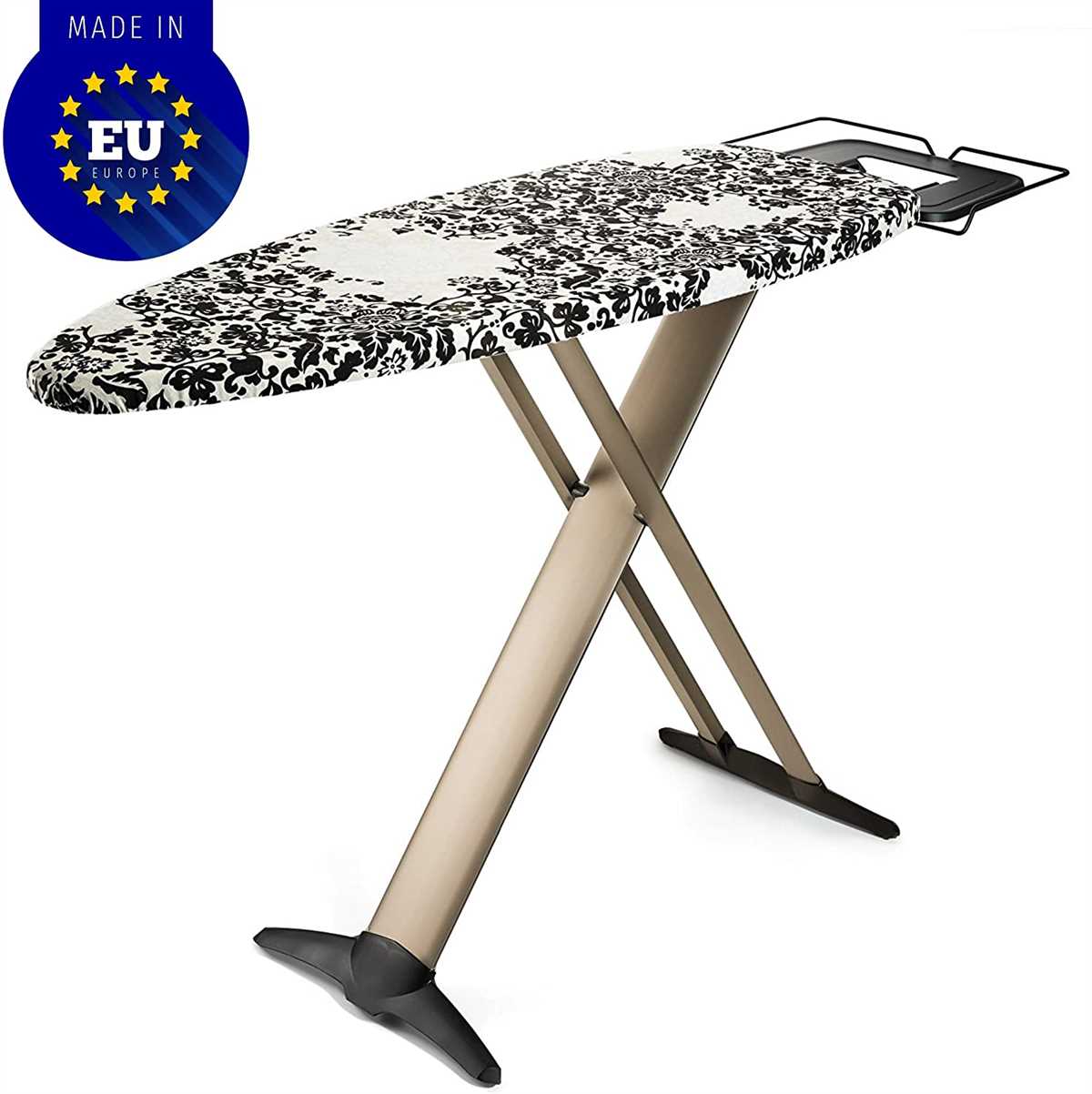
The traditional ironing board is the most common type that you will find in households. It features a flat surface made of wood or metal, supported by legs. This type of ironing board is versatile and works well with most types of clothes.
- Pros: Stable and sturdy, can handle heavy fabrics and large garments.
- Cons: Takes up more space, not easily adjustable in height.
2. Tabletop Ironing Board
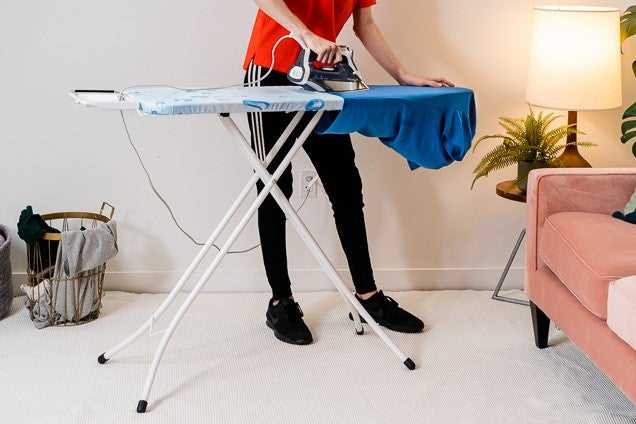
A tabletop ironing board is a compact and portable option that is perfect for small spaces or for those who frequently travel. It can be placed on top of a table or countertop and folded away when not in use.
- Pros: Space-saving, lightweight, and easy to store.
- Cons: Limited surface area, not suitable for large garments or heavy fabrics.
3. Wall-Mounted Ironing Board
A wall-mounted ironing board is a space-saving solution that can be attached to the wall. It can be folded down when needed and easily stored away without taking up valuable floor space.
- Pros: Saves space, easy to install and use.
- Cons: Limited surface area, not suitable for large garments or heavy fabrics.
4. Over-the-Door Ironing Board
The over-the-door ironing board is designed to be hung over the back of a door, making it a great option for those who have limited floor or wall space. It can be easily folded down when needed and stored away.
- Pros: Space-saving, easy to use and store.
- Cons: Limited surface area, not suitable for large garments or heavy fabrics.
5. Built-in Ironing Board
A built-in ironing board is a permanent solution that is installed into a wall or cabinet. It provides an integrated ironing surface that can be easily accessed and folded away when not in use.
- Pros: Saves space, convenient and easily accessible.
- Cons: Requires installation, not easily adjustable in height.
When choosing an ironing board, consider your space limitations, the types of clothes you iron most frequently, and your personal preferences. Each type of ironing board has its pros and cons, so make sure to choose one that suits your needs and lifestyle.
Ironing Board Size: Finding the Right Fit for Your Space
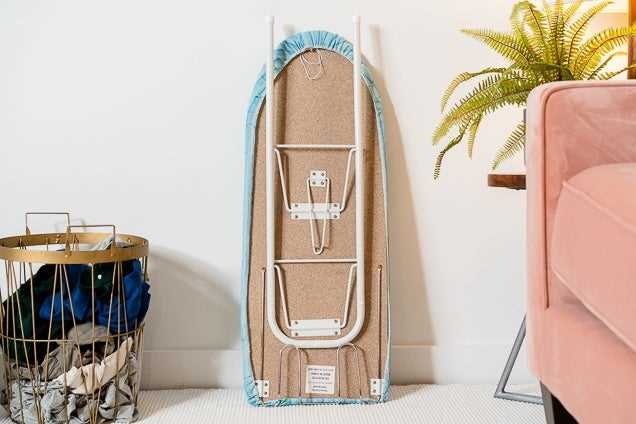
When it comes to choosing an ironing board, size matters. The right size of ironing board can make all the difference in both the functionality and convenience of your ironing experience. Whether you have a small apartment or a spacious laundry room, finding the right fit for your space is essential.
One important factor to consider is the width of the ironing board. A wider ironing board can provide more surface area for ironing, allowing you to work on larger items such as bedsheets and tablecloths with ease. However, if you have limited space, a narrower ironing board may be more practical. It’s important to measure the space where you plan to set up the ironing board and choose a width that fits comfortably without obstructing other furniture or appliances.
The length of the ironing board is another crucial aspect to consider. A longer ironing board can accommodate longer garments such as dresses and trousers, preventing them from touching the floor while you iron. On the other hand, a shorter ironing board may be sufficient if you primarily iron smaller items like shirts and blouses. Think about your ironing needs and the types of clothes you frequently iron, and choose a length that suits your requirements.
Additionally, height adjustment is an important feature to look for in an ironing board. A height-adjustable ironing board allows you to customize the height according to your preferences and body posture, ensuring maximum comfort and reducing the strain on your back and shoulders. Consider your own height and ensure that the ironing board can be adjusted to a suitable height for you.
In conclusion, finding the right size of ironing board for your space is crucial for a comfortable and efficient ironing experience. Consider the width, length, and height adjustment features of the ironing board to ensure a perfect fit. By doing so, you can make ironing a breeze and achieve professional-looking results every time.
Features to Look for in an Ironing Board
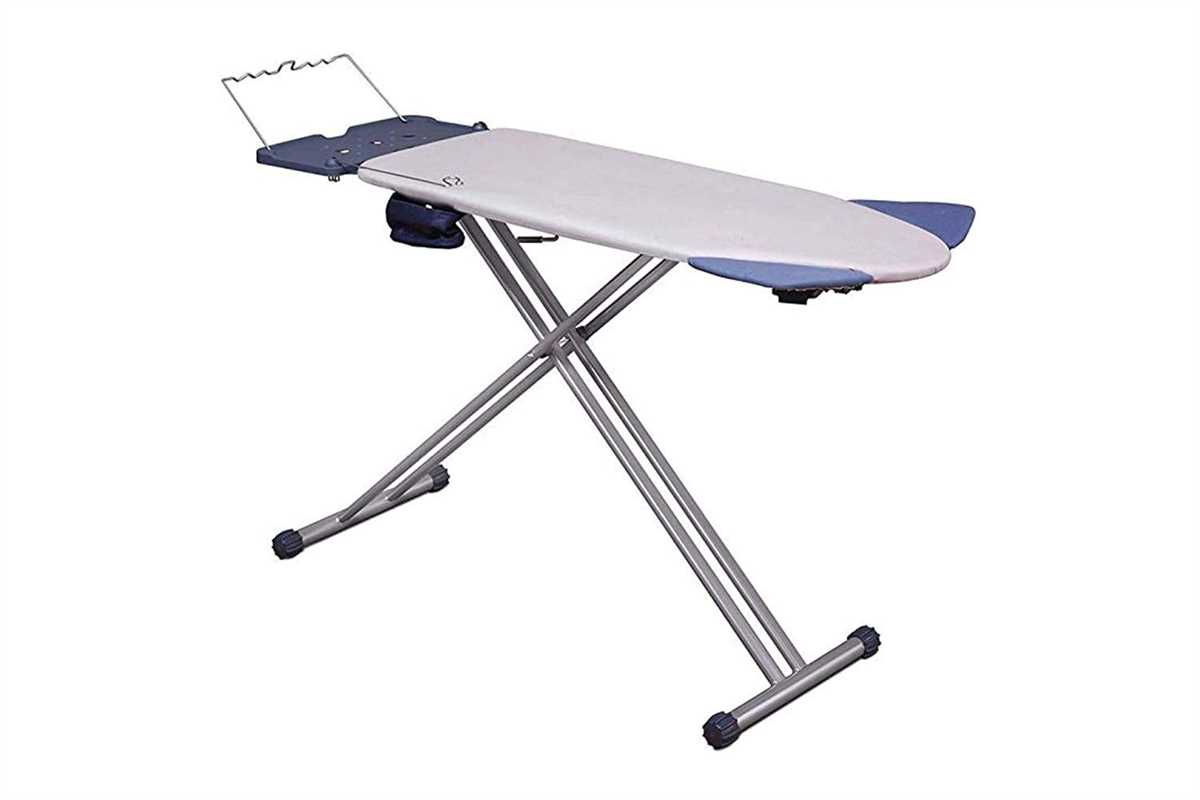
Choosing the right ironing board can make a big difference in the efficiency and quality of your ironing. Here are some key features to consider when selecting an ironing board:
- Size and Height: Look for an ironing board that is the appropriate size for your needs. Consider the dimensions of the ironing surface and the overall dimensions of the board when folded. Additionally, adjustable height settings can provide ergonomic benefits, allowing you to work at a comfortable level.
- Stability: A stable ironing board is essential for achieving smooth, wrinkle-free results. Look for a board with sturdy legs and a strong base. Some models even have non-slip feet or a locking mechanism to ensure stability during use.
- Iron Rest: An iron rest is a convenient feature that allows you to safely place your iron when not in use. Look for a large, heat-resistant iron rest that can accommodate different iron sizes and shapes.
- Cover Material: The cover material of an ironing board plays a crucial role in ironing performance. Opt for a cover that is made of durable, heat-reflective material to ensure efficient heat distribution and retention. Some covers also have a thick padding for extra ironing comfort.
- Folding and Storage: Consider the ease of folding and storage of the ironing board. Look for a board that can be easily folded and stored in a compact space. Some models even have a built-in hook or hanger for convenient storage.
- Additional Features: Depending on your needs and preferences, you may want to consider other features such as a built-in sleeve board for ironing sleeves and small garments, a built-in power outlet for easy access to electricity, or a cord holder to keep the iron cord out of the way.
By considering these features, you can find an ironing board that suits your needs and helps you achieve professional ironing results.
How to Maintain and Care for Your Ironing Board
1. Clean the surface regularly: It is important to keep your ironing board clean to ensure smooth and efficient ironing. Use a damp cloth or sponge to wipe down the surface after each use. This will help remove any stains, dirt, or residue that may have accumulated.
2. Check for damage: Regularly inspect your ironing board for any signs of damage or wear. Look for loose or broken parts, such as the legs or the cover. If you notice any issues, repair or replace them as necessary to ensure the board’s stability and safety.
3. Store it properly: When you’re not using your ironing board, make sure to store it in a clean and dry place, away from direct sunlight or excessive heat. This will help prevent any damage or warping to the board’s surface or structure.
4. Replace the cover when needed: Over time, the cover of your ironing board may become worn out or stained. Replace it with a new cover to ensure smooth ironing and avoid any damage to your clothes. Choose a cover that fits securely and is made of heat-resistant material.
5. Adjust the height: Many ironing boards come with adjustable height settings. Make sure to adjust the height to a comfortable level for you to avoid straining your back or shoulders while ironing. This will also allow for better control and precision during ironing.
6. Use a heat-resistant pad: To protect the surface of your ironing board from excessive heat or scorch marks, place a heat-resistant pad or a pressing cloth over it. This will help prolong the life of your board and prevent any damage to your clothes.
7. Avoid overloading: When ironing heavier or larger garments, avoid putting too much weight or pressure on your ironing board. This can cause the board to become unstable or even break. Instead, use a sturdy ironing board specifically designed for heavy-duty use.
8. Remove any stubborn stains: If you encounter stubborn stains on your ironing board cover, try using a mild detergent or stain remover to tackle them. Follow the manufacturer’s instructions and be sure to rinse off any cleaning products thoroughly before using the board again.
9. Keep it away from children and pets: Ironing boards can be hazardous if left unattended, especially for curious children or mischievous pets. Always keep your ironing board out of reach when it’s not in use, and never leave a hot iron unattended.
10. Follow the manufacturer’s instructions: Lastly, make sure to read and follow the manufacturer’s instructions and guidelines for your specific ironing board. This will help ensure proper care and maintenance, as some boards may have specific requirements or recommendations to prolong their lifespan and functionality.
5 Best Ironing Boards
Features
| Part Number | IB-240-241 |
| Model | 240-241 |
| Color | Black |
| Size | 122 X 38cm |
Features
| Part Number | 031 |
| Model | 031 |
| Color | Grey |
| Size | One Size |
Features
| Part Number | HIR501BWH20230825 |
| Model | HIR501B-WH |
| Color | White |
| Size | 49.2x34.5x20cm |
Features
| Part Number | HH40707103K |
| Model | HH40707103K |
| Color | Black |
| Size | Extra Wide |
Features
| Part Number | STB-2023 |
| Model | STB-2023 |
| Color | Grey |
Features
| Model | DYN13744 |
| Color | White |
Features
| Part Number | Pratic |
| Model | Pratic Ironing board |
| Color | Blue |
| Size | One Size |
FAQ
How often should I clean my ironing board?
You should clean your ironing board regularly to remove dust and debris. Aim to clean it every couple of months or as needed.
What is the best way to clean an ironing board cover?
You can remove the cover and hand wash it with mild detergent and warm water. Allow it to air dry before putting it back on the ironing board.
How should I store my ironing board when not in use?
You should fold up your ironing board and store it in a clean and dry area. Make sure it is not exposed to excessive moisture or direct sunlight.
How do I remove stains from my ironing board cover?
You can try spot cleaning the stains with a mild stain remover or soap and water. If the stain persists, you may need to replace the cover.
What should I do if my ironing board becomes unstable?
If your ironing board becomes wobbly or unstable, check the legs and hinges for any loose screws. Tighten them if necessary. If the problem persists, you may need to replace the ironing board.
Why is it important to maintain and care for your ironing board?
It is important to maintain and care for your ironing board because it prolongs its lifespan, ensures better ironing results, and helps prevent accidents or damage to clothing.
Conclusion
In conclusion, maintaining and caring for your ironing board is essential to prolong its lifespan and ensure effective ironing. This can be achieved by regularly cleaning the board, inspecting for damages, and taking preventative measures to prevent wear and tear. Additionally, selecting the appropriate cover and storing the board properly will also contribute to its longevity. By following these simple steps, you can keep your ironing board in optimal condition, allowing for smooth and efficient ironing for years to come.














